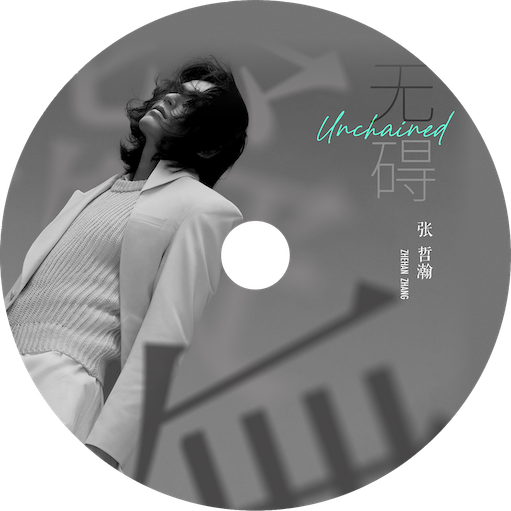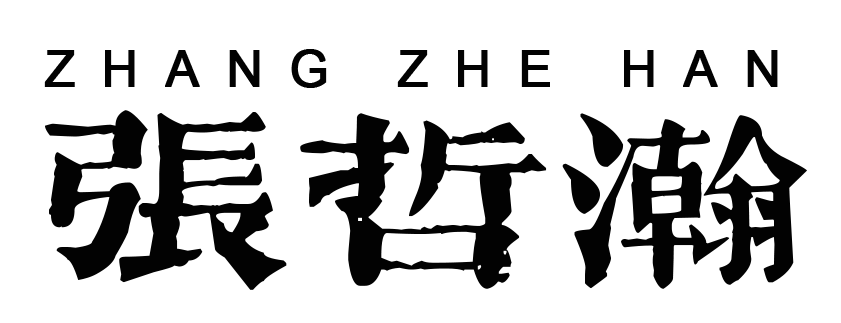Too Cool To Kill
Zhang Sanjian 2022-02-11 22:30
After watching the movie and leaving the cinema, I sighed three times, good, really good, exceptionally good (these are exclamatory sighs, not sighs of disappointment). Many words were stuck in my throat, and I didn’t know how to express them. I just wanted to recommend it to everyone using the closing sentence of the film, “Success is just one more persistence than failure.” At that moment, my feeling was: stop talking(。ì _ í。), just let me watch! Just watch. No need for so much unnecessary chatter.
Back at home, I lay in bed for a long time, finding it hard to fall asleep. With my eyes closed, my thoughts were racing—perhaps this is what they call a surge of inspiration. You could say that some people close their eyes, but their minds are incredibly clear; while others keep their eyes open, but their brains are in a state of deadlock. This state of clarity persisted until midnight when I heard the sound of someone flushing the toilet outside the bedroom door twice (I won’t dare to say who it was). I decided to write this article even with my dark circles.
I haven’t been to the cinema for several months. During the Spring Festival, I wanted to watch a comedy to relax, so I chose “Too Cool To Kill” While the film made me laugh heartily, it also left me with a lot of feelings and touched me deeply. It once again confirmed that the essence of comedy is tragedy, and life is about laughing and crying while persevering. We should talk about our hardships with laughter, that’s how we should live our lives.
The film maintains the typical style of Mahua FunAge (the production company). It even slightly enhances it. After all the male lead character is a bit “crazy.” The movie pays homage to several classic films such as “King of Comedy,” “God of Gambling,” “The Bund,” and “The Godfather.” What impressed me the most is the performance that pays tribute to “Singin’ in the Rain.” It made me have great respect for the male lead, and his professionalism truly lives up to the title of “male lead,” without a doubt.
I may not be the best judge, but I have had some learning and research in acting. Below, I would like to express some of my personal humble opinions.
For an actor, there are four fundamental courses: Voice, Diction, Body, and Acting. These are somewhat similar to the four basic courses for XiangSheng performers, which are speaking, imitating, teasing, and singing.
“Voice” refers to vocal music. It involves our understanding of music rhythm, music theory knowledge, and learning about singing performances and sound shaping.
“Diction” refers to dialogue. It includes training in “diction,” which encompasses various language learning, practicing standard Mandarin, and understanding different regional dialects. Common methods include loud reading of tongue twisters. Personally, I prefer to use counting for warm-up exercises and occasionally do oral exercises taught by teachers.
“Body” refers to physicality. Body language is an indispensable part of successfully portraying a character. In class, teachers have us practice various dance forms such as ballet, modern dance, jazz, and tap dance to open up the tension in our bodies. The rhythm of body movements, including tension and relaxation, stillness and motion, speed, and flexibility, can help us find appropriate ways to express ourselves.
“Acting” is self-explanatory; it means performing. It involves integrating the knowledge acquired from the above courses. Through the lens of a camera or on stage, we present it. “Acting” equals “understanding.” An actor’s ability to create a successful character depends on their understanding of the character. This includes understanding the character’s background, imaginative thinking within the given context, and rationalizing them through understanding. “Within reason, beyond expectations” is, I believe, praise for an actor who provides the audience with surprises within the original story context, creating characters that leave a lasting impression in people’s hearts.
A well-rounded character will have many facets, touching on aspects like friendship, love, family, adversity, and more. Understanding serves as the interface for all emotions and feelings. Only with a deep understanding can you make the audience empathize with your performance (assuming the performance is natural). There are also some technical and experiential factors in this regard, which I won’t delve into further here.
When your understanding successfully constructs a full and diverse personality and soul for the character, you will possess a strong sense of conviction, believing in the power of belief.
I genuinely admire how this actor boldly portrayed themselves as an Italian mafia orphan, seamlessly switching between Chinese and Italian languages, and delivering the performance effortlessly. The actor’s seemingly crazy conviction brought the character “Carl,” the hitman, to life perfectly, and their internal monologue-style performance had the audience in stitches while maintaining consideration for the camera’s perspective. “No sword in hand, no sword in the heart” is the highest realm of a martial arts master, isn’t it? Of course, the occasional “special attention” to the camera in the film, on the one hand, expresses the character’s unease about being “hit” by the male lead (internal doubts), and on the other hand, balances the comedic effect of the performance.
I have to say, the atmosphere in the movie theater is really great. The laughter of the audience around me, which goes on and on, is so infectious! It’s impossible not to burst into laughter.
In the past, in the classroom, the teacher asked us to use all our tricks to make our classmates laugh. At that time, we felt that making one person laugh was really difficult, especially for us who were inexperienced and didn’t have thick skin. After practicing in the classroom, the teacher told us that repeating funny actions would make the audience laugh more easily and also deepen the impression of the characters, just like the saying, “Say important things three times.” When it comes to humor, please do it three times. The classic line from “The Truman Show” goes: “Good morning, and in case I don’t see you, Good afternoon, Good evening, And good night.” It makes people laugh and feel nostalgic.
I admire this actor for being able to pursue their beloved career throughout their life; it’s truly a happy thing. Just like being able to grow old together with someone you love, it’s also everyone’s aspiration for love.
In the final scene of the film, the male lead, with tears in his eyes, expresses gratitude to everyone for their help and says goodbye to his first leading role. It made me sigh, realizing that for an actor with an ordinary appearance, it’s really challenging to play a leading role, just as it is for a naturally beautiful actor to break free from their established image. Both face significant obstacles.
When Nüwa created humans, she established a relative sense of fairness, much like in the novel “Fortress Besieged” where those inside the city want to get out, and those outside want to get in. A psychologist once told me that the power of authenticity surpasses that of perfection by far. I’m not a perfect person myself, and I don’t want to deliberately conform to the perfect image that others may have in their minds. I also won’t cater to the fantasies of those driven by their own desires. I simply aim to be my authentic self and enjoy every moment of the present.
When I was a child, I didn’t like to read and loved to play. The 800-word essays in Chinese exams were a nightmare, requiring me to rack my brains and think haphazardly just to barely meet the word count. After entering college, I realized that my major required a strong literary foundation. The more books I read, the more I felt like a ‘poor man.’
Consistently engaging in sports is also a remarkable thing. Ever since I started writing for my blog and playing the guitar, I often find myself sitting for hours or even the whole day. During cold winter weather, it becomes difficult to get up from my seat, and I have to reflect on myself, promising to resume my exercise routine starting tomorrow!
The name of the male lead, Wei Chenggong, also embodies the essence of the movie. Our hard work, isn’t it all for the day when we can stand out and achieve great success, soaring to new heights ➡ “For Success.” (translation note: The pronunciation of “Wei Chenggong” is the same as “For Success” in Chinese.) It is absolutely rewarding for actor Wei Xiang to showcase his talent and abilities in a movie that touches the heart. I have nothing but respect for him.
 最后再说一说开心麻花这个团队的友情着实令人羡慕,每个人都能互为鲜花,互为绿叶。《西虹市首富》、《羞羞的铁拳》、《李茂换太子》、《这个杀手不太冷静》,同样一群人主角却在不断转换,互相帮扶,相互提携。为伙伴的成功而高兴,为这个集体,每个人都发挥自己的光热。以后只要是开心麻花的电影我必到电影院支持。
最后再说一说开心麻花这个团队的友情着实令人羡慕,每个人都能互为鲜花,互为绿叶。《西虹市首富》、《羞羞的铁拳》、《李茂换太子》、《这个杀手不太冷静》,同样一群人主角却在不断转换,互相帮扶,相互提携。为伙伴的成功而高兴,为这个集体,每个人都发挥自己的光热。以后只要是开心麻花的电影我必到电影院支持。
Finally, let’s talk about the friendship within the Mahua FunAge team, which is truly admirable. Everyone can take on leading roles and supporting roles for each other. In movies like ‘Hello Mr. Billionaire,’ ‘Never Say Die,’ ‘Another Me,’ and ‘Too Cool To Kill,’ the main cast is the same group of people, but they constantly switch roles, help each other, and uplift one another. They are genuinely happy for their partners’ success and, as a collective, each person shines in their own way. In the future, I will definitely go to the cinema to support any movie from Mahua FunAge.
Guess which movie’s ending song this is?








